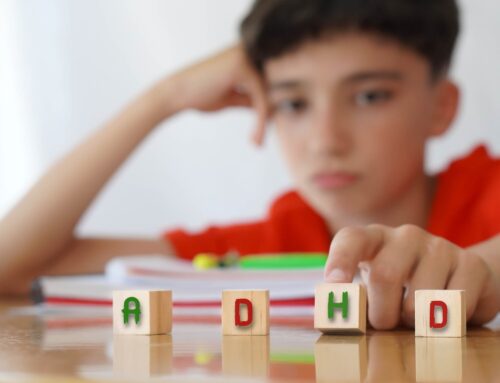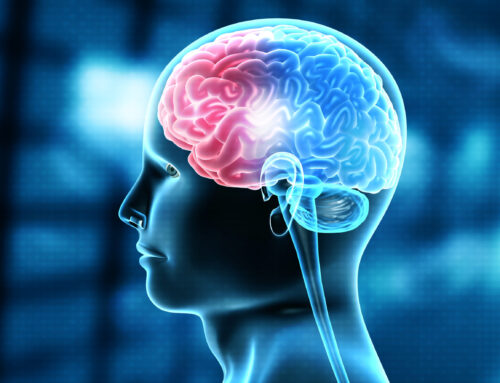6 myths about Autism
Myth #1: Autism is becoming an epidemic
This is a myth. The growing number of people with ASD reflects our increased knowledge, understanding and ability to recognize ASD in children and youth, as well as the expansion of what the diagnosis includes. The growing population of adults being diagnosed is also reflected in these rising numbers.
Many people who may have been seen as socially awkward, introverted, or insensitive in the past are now being recognized as having ASD.
Myth #2: People with Autism do not experience emotions
People with autism are completely capable of feeling all emotions. Because autism can impact one’s ability to communicate and socially interact, this is often misinterpreted as being an expression of a lack of interest or inability in making connections and relationships. Autistic people can also struggle with interpreting other people’s emotions, body language and expressions, and understanding social nuances. This different level of understanding and interacting might impact on their ability to connect and socialize but is not reflective of their unwillingness or disinterest. Therapy and professional intervention can help autistic individuals to implement their very human desire to connect.
Myth #3: People with Autism have intellectual disabilities and are non-verbal
The truth is that some people with autism do also have an accompanying intellectual disability and some people don’t. Some autistic people can speak and communicate verbally, others can’t. Some autistic people have higher IQs than other people and some have IQ levels within the average range. Not only is there a complete range in all of these areas, even those autistic individuals with late developing speech all develop at different rates and to different levels. There is a wide, wide range of skills, abilities, and communication levels among people on the autism spectrum.
Myth #4: One can grow out of Autism
One cannot grow out of autism. It is a lifelong disorder and there is no ‘cure’ for autism through either therapy or medicine. Autism is a spectrum and not only are autistic people all affected in different ways, but the level of impact and type of autistic traits can change and develop throughout the different life stages of an individual. Of course, appropriate therapy and intervention can help address areas of specific concern, help support the development of new skills and communication/social abilities, and improve their day to day life overall. Despite being a lifelong disorder, there is absolutely no reason why anyone with autism can’t lead as happy and meaningful a life as anyone else.
Myth #5: All Autistic people have a savant skill
The existence of savant syndrome is not a myth. It is a real thing. What is a myth is the assumption that ALL autistic people have a savant skill. In fact, no more than 1 in 10 (or 10%) of people with autism display some advanced level of a particular skill. Even among those who do have a ‘savant skill’, the skills themselves are very varied both in type and degree. Autistic individuals often exhibit very specific and focused interest in a singular topic, sometimes to the exclusion of everything and anything else. This means that they might have a higher than average level of knowledge on the specific subject.
Understandably, this might lead to confusion regarding whether they have savant abilities, but in reality it is more likely than not simply an expression of their keen interest in the topic.
Myth #6 Children with Autism are Violent
The truth is that it is certainly not the case that all children with autism are violent and of those that are, it’s not necessarily true that they are “more violent” than any other child who may resort to hitting or kicking or shouting when they don’t get what they want or are upset. Recent research has indicated that violence is no more prevalent among autistic people than others.
Autistic children who do behave like this sometimes lack the ability to cope or express themselves in alternate ways. But many children, with or without autism, can struggle to cope with their own emotions and deal with them appropriately. Depending on the autistic child, they could be struggling with sensory inputs from the environment, may not be able to regulate their emotions or may find communicating themselves particularly difficult. It is not true that an autistic child is intentionally more violent or likely to cause physical harm.
This blog was written by Registered Social Worker, Christine Bibby and was adapted from One Central Health.













 Sharon Walker, MSW, RSW
Sharon Walker, MSW, RSW Jordon Iorio Hons. BA, RSW
Jordon Iorio Hons. BA, RSW Christine Bibby, B.S.W., M.S.W., R.S.W.
Christine Bibby, B.S.W., M.S.W., R.S.W. Brianna Kerr, RSW
Brianna Kerr, RSW Danielle Vanderpost, RSW
Danielle Vanderpost, RSW Daniela Switzer, MA, C.PSYCH
Daniela Switzer, MA, C.PSYCH Tammy Adams
Tammy Adams Jade Bates, RMT
Jade Bates, RMT Caitlin Schneider
Caitlin Schneider Dr. Crysana Copland
Dr. Crysana Copland
 Amy Dougley
Amy Dougley Emily Green
Emily Green Bill Dungey, RSW
Bill Dungey, RSW



 Jessica Moore, RSW
Jessica Moore, RSW Abigail Wragge, RSW
Abigail Wragge, RSW